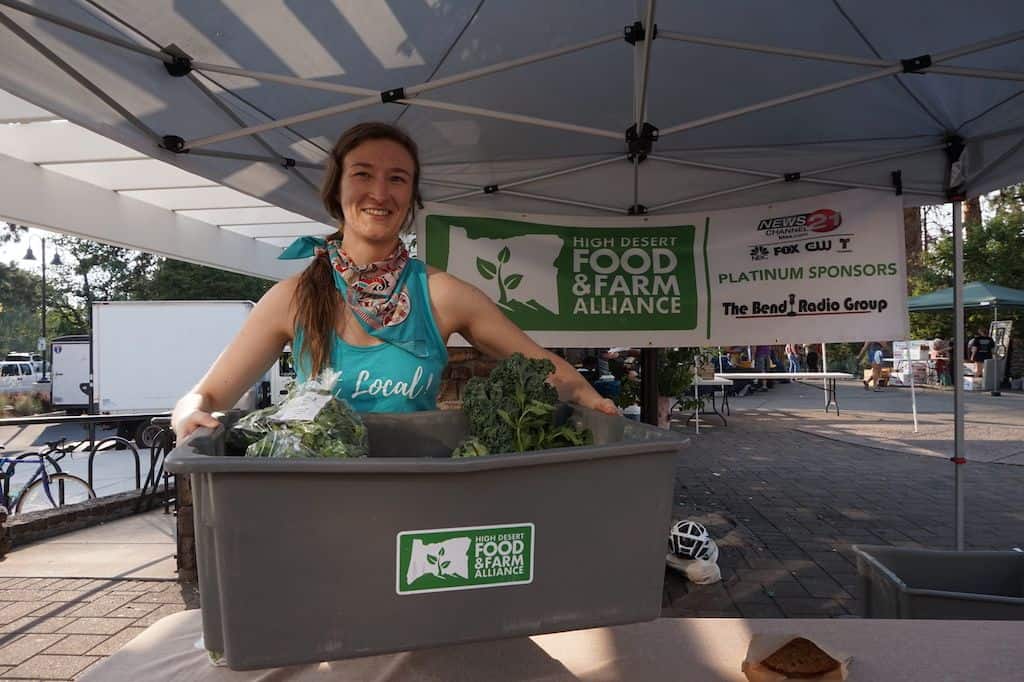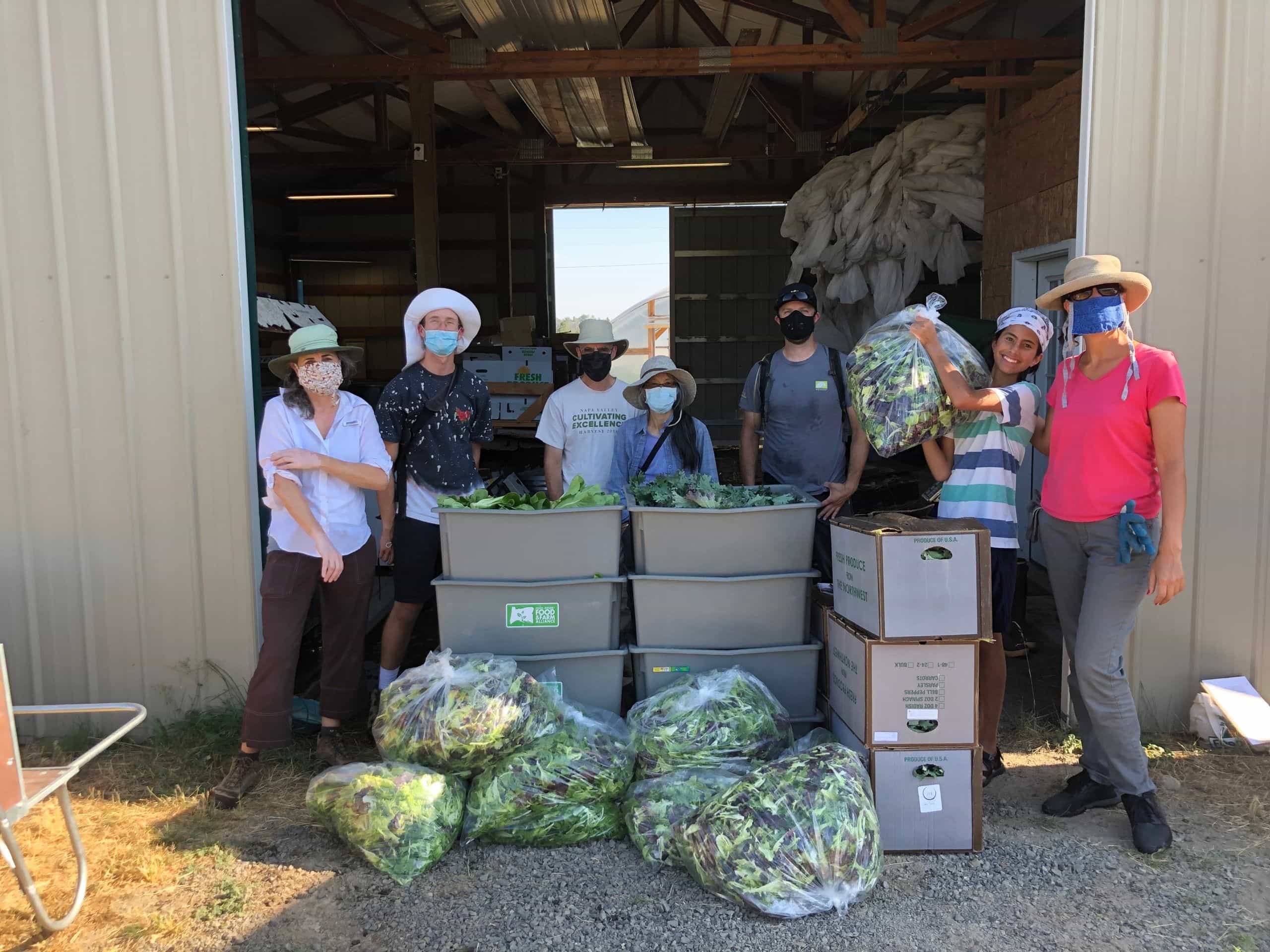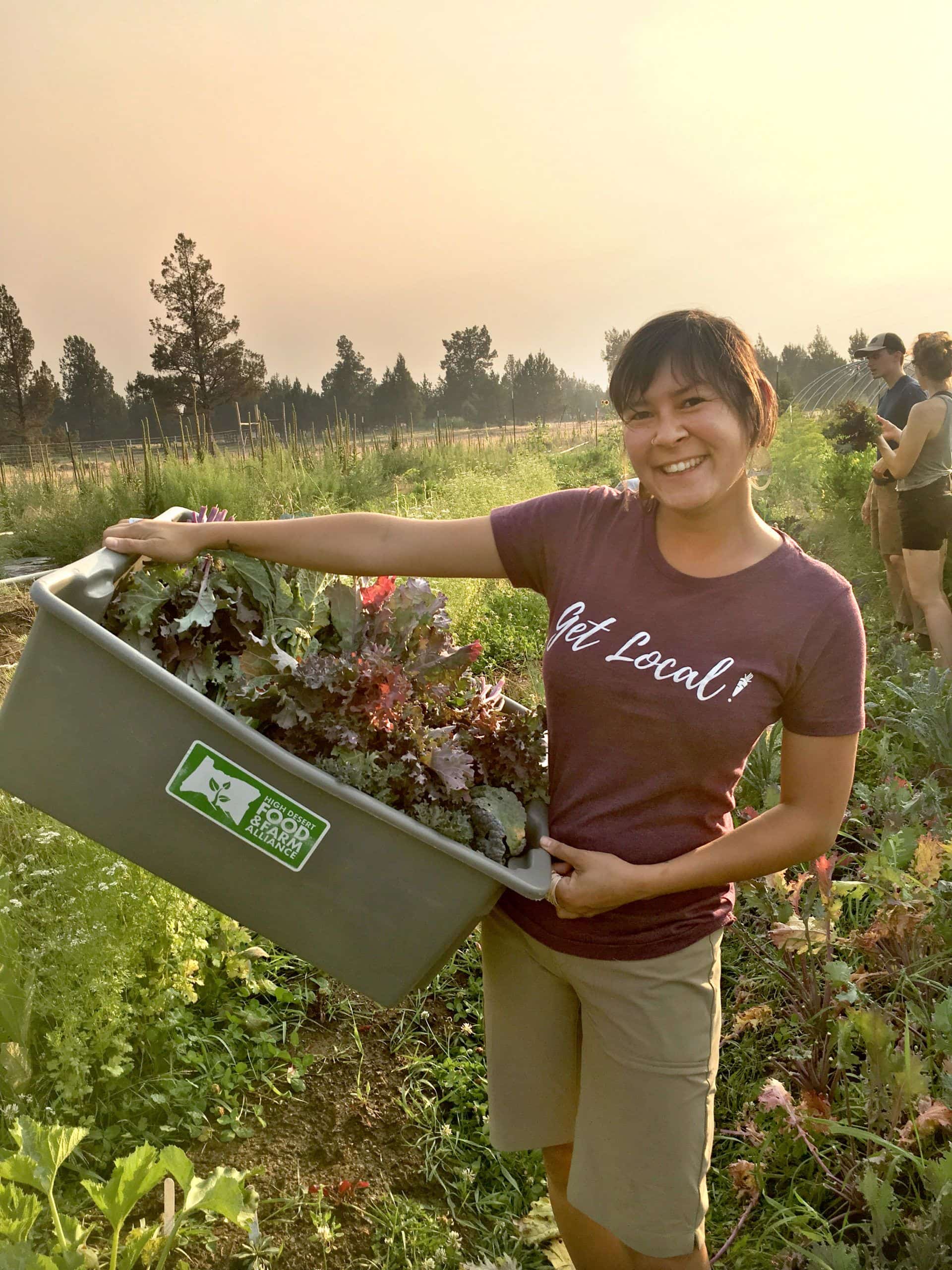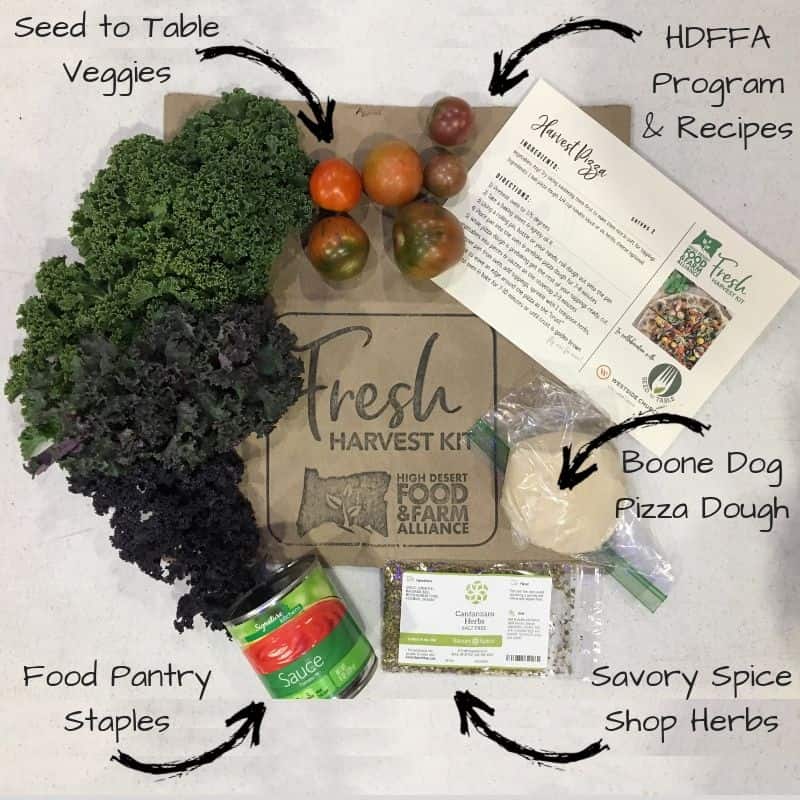Whole Cities Foundation believes that community members know best. Guided by our Community First Principles, we have a deep respect for the powerful work that exists in local food systems, so we aim to listen carefully to community-led organizations to understand their specific needs, then support and amplify their efforts. The goal of partner spotlights like this is to share their stories, create connections and help spark inspiration for other organizations on their journey of community self-determination.

The secret is out. Offering year-round outdoor adventures in beautiful landscapes, family-friendly living, great weather and a celebrated craft beer scene, the small town of Bend in Central Oregon is experiencing big growth. According to the U.S. Census Bureau, the town grew nearly 30% from 2010 to 2020, and the cost of living went up 22.5%.*
As Bend swells from a small town to a mid-sized city, its population experiencing food insecurity has increased too. It is estimated that 13% of the Central Oregon population is experiencing food insecurity. Now, with the COVID pandemic creating additional barriers to food access, food pantries are reporting increases in demand as high as 70%.**
There are, however, local organizations working hard to expand fresh, healthy food access through a variety of community-led projects. High Desert Food and Farm Alliance (HDFFA) is one such organization.
“Access to healthy, fresh food alone is not enough. It’s important that our participants also have access to information about how to shop, prepare, and cook with it.”
Louise Shirley, High Desert Food and Farm Alliance’s Program Director
Founded in 2010, HDFFA’s mission is to support a healthy and thriving food and farm network in Central Oregon through education, collaboration, and inclusion. As a locally led nonprofit, they are committed to improving equitable access to affordable, nutritious, locally grown and culturally appropriate food for Central Oregonians.

HDFFA’s food access programs, guided by their Food Security Advisory Committee, aim to strengthen the ties between traditional food security efforts (like food banks) and building healthy food systems (e.g. farm to plate). However, food access is only one part of their approach in fostering long-term community health.
“Access to healthy, fresh food alone is not enough. It’s important that our participants also have access to knowledge about how to shop, prepare and cook with it,” explains Louise Shirley, High Desert Food and Farm Alliance’s Program Director. “Our programs and resources are generated from an increased understanding of the nexus between nutrition education and healthy food access.”
HDFFA has created two practical applications — “Cooking Counts” and an online nutrition library and booklet — that reinforce why healthy food is important and how to make manageable, healthier choices, one meal at a time. These two educational resources act as a catalyst for developing lifelong healthy habits and ultimately, advancing community health.
Cooking Counts: A Guide to Cooking with Confidence

In 2020, HDFFA published “Cooking Counts: A Guide to Cooking with Confidence in Central Oregon,” an 86-page booklet created to support and inspire individuals and families to take charge of their health one step (one choice or one meal) at a time. Designed with HDFFA’s registered dietician and Central Oregon chefs, the guide features more than 40 quick and easy nutritious recipes. There are recipes for meals, snacks and desserts ranging from Leafy Green Scrambled Eggs to Vegetarian Chili to Seasonal Fresh Fruit Crisp.
“Cooking Counts” embraces approachability. The recipes include easy-to-follow instructions, quick preparation times, and useful tips such as recommended add-ins, techniques, adaptations and shortcuts.
The guide also presents practical nutrition information including tips on navigating sugar and salt, the importance of eating a variety of vegetables and fruits and how to eat more of them at every meal, plus, food storage and food safety. In addition, a section on culinary skills covers vegetable substitutions and step-by-step guides on how to make smoothies, roast vegetables, cook greens, and build salads.
Learn more about the “Cooking Counts” booklet.
Nutrition Library
 HDFFA’s registered dietician also created an online Nutrition Library where users can explore recipes, vegetable fact sheets (including nutritional properties, storage tips, preservation, preparation tips and suggested recipes), cooking basics like knife skills, a Central Oregon Harvest Guide, and general nutrition information such as portion size and nutritional labels. Much of the information has been translated into Spanish, too.
HDFFA’s registered dietician also created an online Nutrition Library where users can explore recipes, vegetable fact sheets (including nutritional properties, storage tips, preservation, preparation tips and suggested recipes), cooking basics like knife skills, a Central Oregon Harvest Guide, and general nutrition information such as portion size and nutritional labels. Much of the information has been translated into Spanish, too.
Learn more about the Nutrition Library.
Integrating Food Access Programs and Nutrition Education Resources
HDFFA’s nutrition resources were created to work in tandem with food access programs. Together these programs and resources support community health by increasing the availability and consumption of nutritious foods, and community members’ proficiency in preparing them, and also by encouraging a more comprehensive understanding of nutrition and its value.
The “Cooking Counts” guide complements HDFFA’s Fresh Harvest Kits. These ready-to-make meal kits contain pantry staple items (such as pasta or rice), local farm fresh vegetables, a seasoning packet, and a recipe card. HDFFA collaborates with local farms and hunger relief agencies to offer the Kits at local food pantries during the peak growing season.
The HDFFA nutrition library was created to support HDFFA’s VeggieRX program, a fresh produce prescription program that improves healthy eating habits for individuals experiencing food insecurity and diagnosed with a diet-modifiable disease. Participants received fresh locally grown vegetables and fruits, nutrition education, and one-on-one support from HDFFA’s registered dietitian-nutritionist. (Note: The highly successful program has been paused for a year as HDFFA explores how to better integrate it into the healthcare system.)
Both nutrition education resources are available for individuals, organizations and healthcare providers.
Partners in Thought and Action
Whole Cities Foundation works at the intersection of healthy food access and nutrition education because we know they are mutually dependent on one another in pursuit of long-term community health.
We have supported nutrition education and healthy cooking through our grant programs from the start. In 2021, we funded nine organizations leading nutrition ed programs in their communities, a record for the Community First Grant. Additionally, Dr. Akua Woolbright serves as Whole Cities’ Nutrition Director. She provides personalized coaching and group lectures in communities across U.S. to support folks to live their fullest, healthiest lives and move toward a more whole-foods, plant-based diet through her Let’s Talk Food program.
Whole Cities Foundation began working with HDFFA in 2017 when we awarded them a Community First Grant. HDFFA has since secured two more, one of which funded the “Cooking Counts” guide. We are honored to support and amplify the efforts of HDFFA as they work to advance community health through both food access programs and nutrition education.
* U.S. Census Bureau and U.S. Bureau of Economic Analysis Regional Price Parities Dataset




